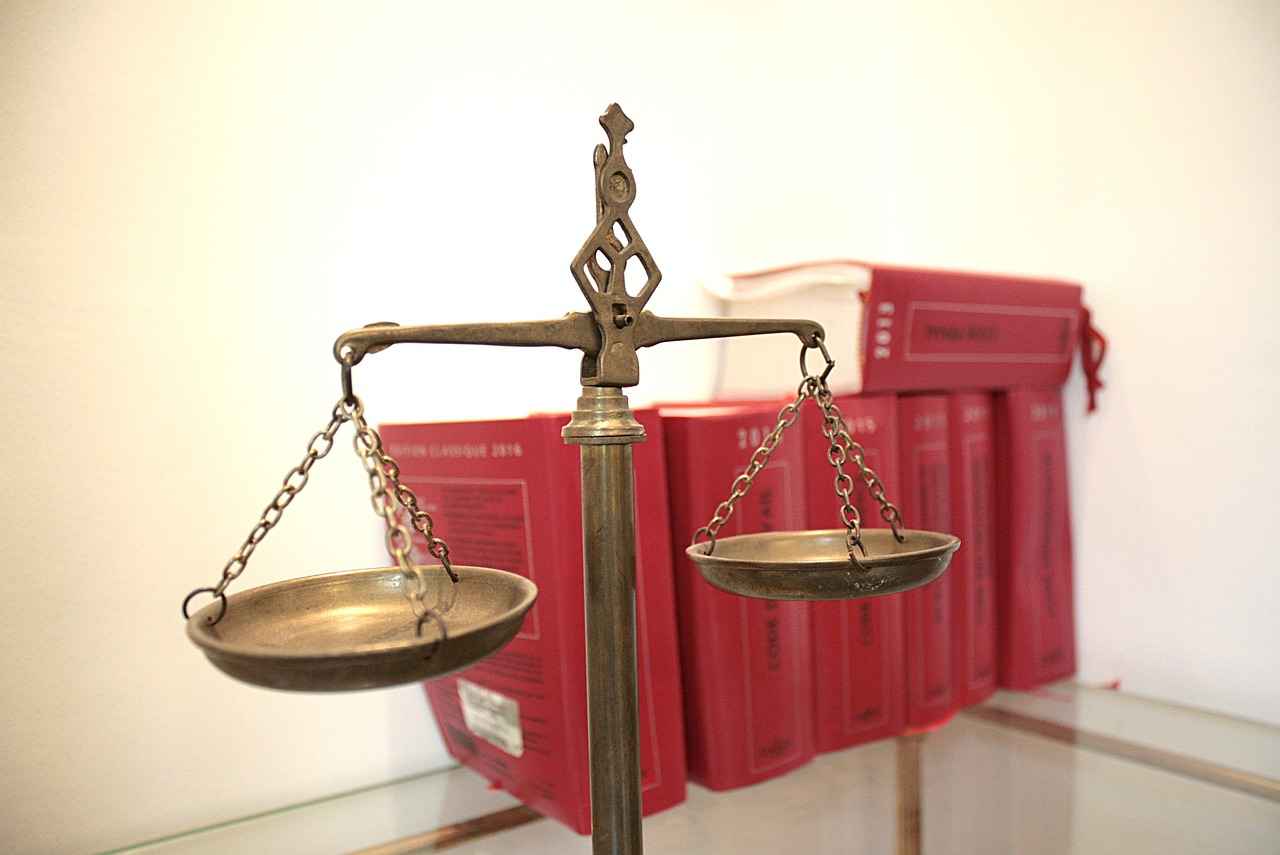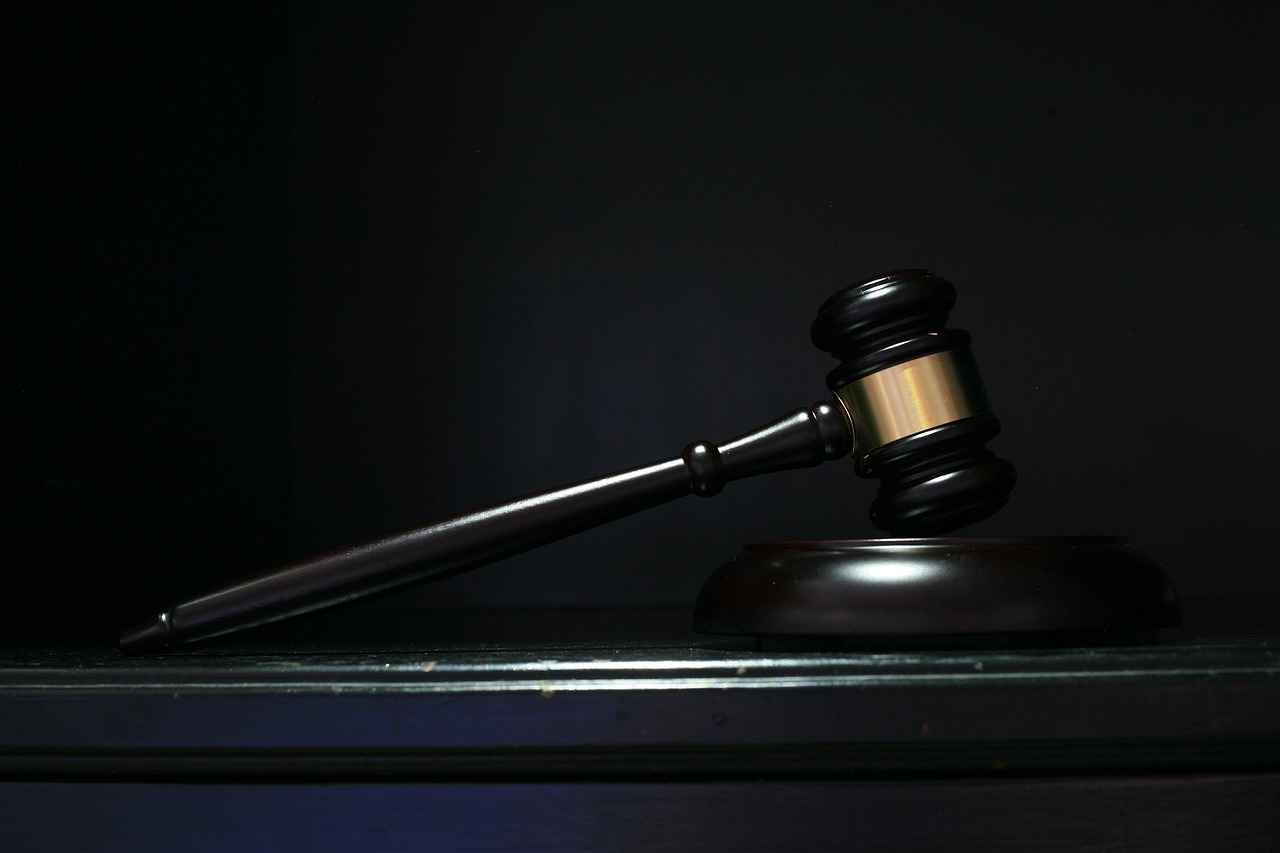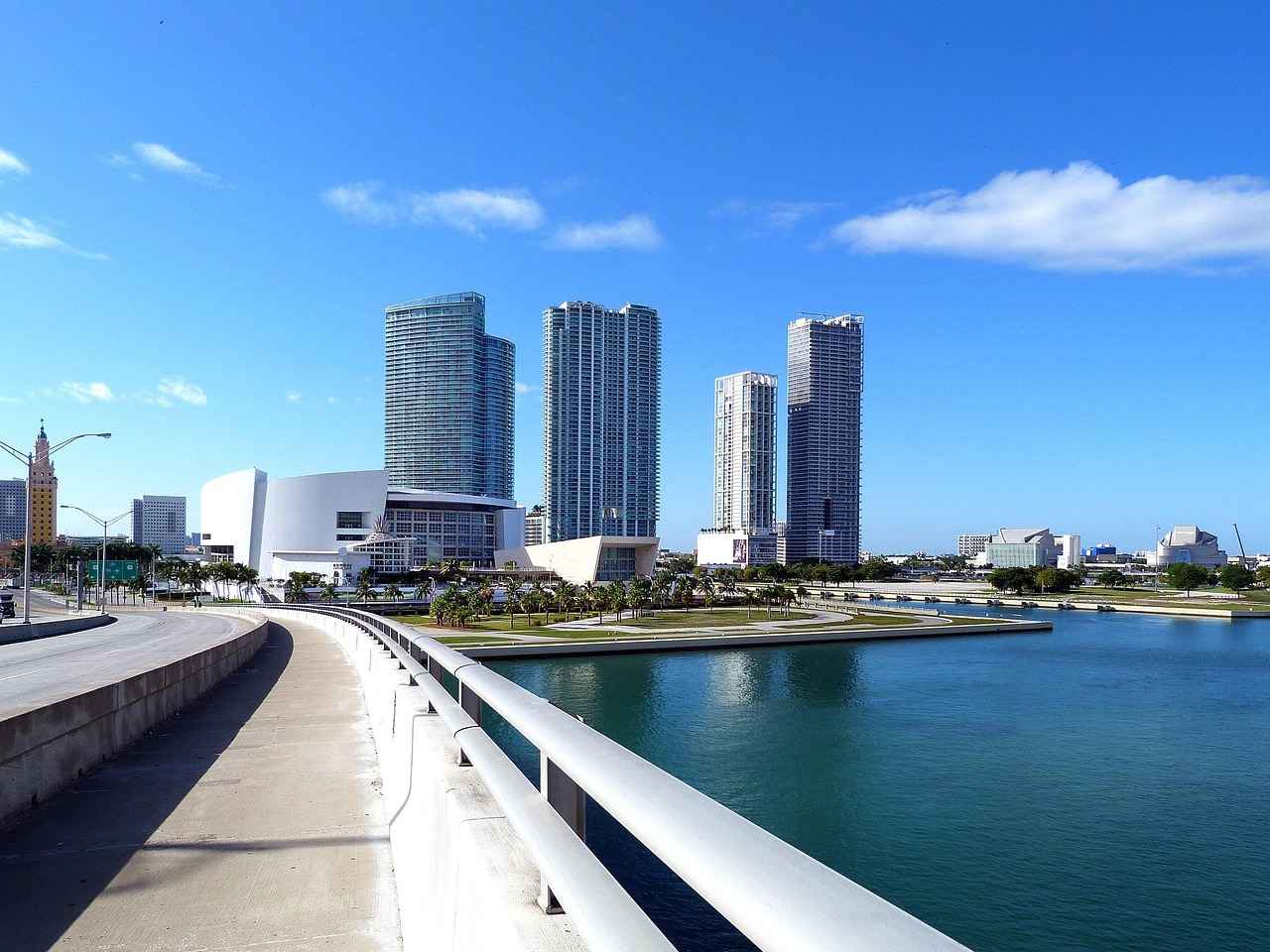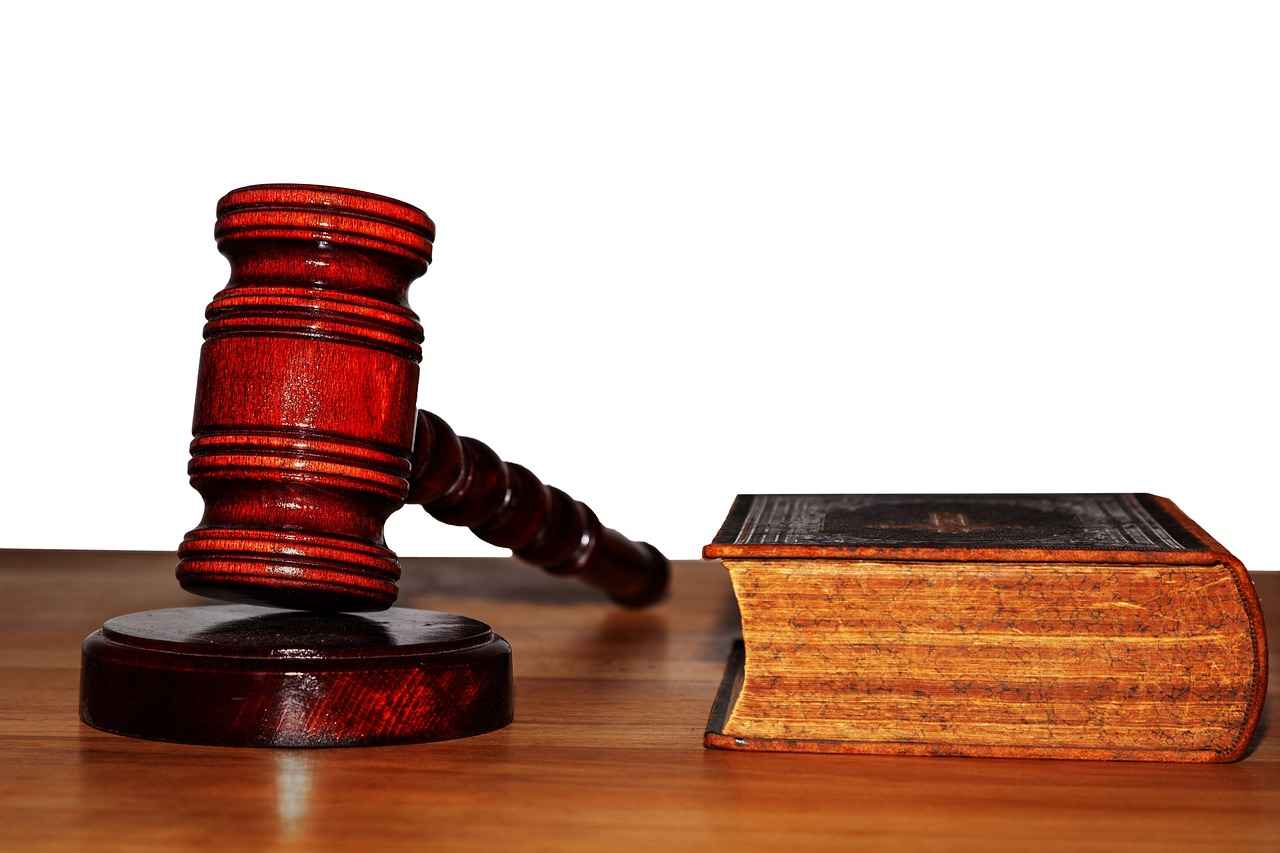This article provides insights into the most common types of legal cases in the U.S. and offers expert guidance on finding qualified legal representation in Miami, Florida.
Understanding Personal Injury Cases
Personal injury cases are among the most common legal issues in Miami, often arising from accidents that cause harm to individuals. It is essential to find an attorney who specializes in personal injury law, as their expertise can significantly influence the outcome of your case. Look for lawyers with a proven track record of successful settlements and verdicts. Platforms like Avvo and FindLaw can help you locate qualified attorneys. Always check for client reviews and testimonials to gauge their reputation.
Medical Malpractice: What to Look For
Medical malpractice claims are complex and require attorneys with specialized knowledge in healthcare law. When searching for legal representation, ensure the attorney has experience handling similar cases. Credentials such as board certifications in medical malpractice law can indicate a lawyer’s expertise. Additionally, consult resources like Martindale-Hubbell for peer reviews and ratings.
Breach of Contract: Navigating Business Disputes
Breach of contract cases are common in business, often leading to disputes that require legal intervention. To find a qualified attorney, seek those with a background in commercial law and a history of resolving similar disputes. Networking events and business associations can also provide referrals to reputable lawyers. Be cautious of attorneys who promise guaranteed outcomes, as this can be a red flag.
Property Disputes: Finding the Right Real Estate Lawyer
Property disputes can arise from various issues, such as zoning laws or landlord-tenant disagreements. It is crucial to hire an attorney with specific experience in real estate law. Look for lawyers who are members of organizations like the American Bar Association’s Real Property Section. Online legal directories can also assist you in finding qualified professionals in your area.
Landlord-Tenant Disputes: Legal Guidance You Need
In Miami, landlord-tenant disputes are prevalent, often involving issues such as eviction or lease violations. To navigate these situations effectively, find an attorney who understands local housing laws. Review their experience with similar cases and ensure they are familiar with Miami’s specific regulations. Local bar associations often have resources to help you find qualified legal counsel.
Defamation Cases: Choosing the Right Attorney
Defamation cases, whether involving libel or slander, require a nuanced legal approach. When seeking an attorney, prioritize those who specialize in media law or reputation management. Look for lawyers with a strong understanding of First Amendment rights and experience in high-profile cases. Checking their previous case outcomes can provide insight into their effectiveness.
Employment Disputes: Protecting Your Rights
Employment disputes can stem from various issues, including wrongful termination or discrimination. When searching for legal representation, seek attorneys with experience in employment law. Verify their credentials and look for membership in organizations such as the NELA (National Employment Lawyers Association). Be wary of lawyers who charge upfront fees without clear billing practices.
Product Liability: Holding Companies Accountable
Product liability cases involve injuries caused by defective products. To pursue justice effectively, find a specialized attorney with a background in consumer protection law. Look for lawyers who have successfully handled similar cases and have access to expert witnesses. Online reviews and case studies can provide valuable insights into their capabilities.
Wrongful Death Claims: Seeking Justice for Loved Ones
Wrongful death claims are emotionally charged and legally complex. It is vital to find a compassionate attorney who has experience in handling sensitive cases. Look for lawyers who have a history of achieving favorable settlements for their clients. Referrals from trusted sources can also be beneficial in finding the right representation.
Class Action Lawsuits: Collective Legal Action
Class action lawsuits allow groups to seek justice collectively. When searching for an attorney, prioritize those with experience in class action litigation. Check their track record for successful outcomes and their ability to manage large groups of clients. Legal forums and advocacy groups can also provide recommendations for qualified attorneys.
Criminal Defense: Navigating Serious Charges
Criminal defense cases, including drug offenses and theft, require attorneys with extensive experience in criminal law. Look for lawyers who have successfully defended clients in similar situations. Resources such as National Association of Criminal Defense Lawyers can help you find qualified professionals. Be cautious of attorneys who make unrealistic promises regarding case outcomes.
Family Law: Finding Support During Tough Times
Family law cases, such as divorce and child custody, can be emotionally draining. Finding an attorney who is not only knowledgeable but also empathetic is crucial. Look for lawyers who specialize in family law and have experience with cases similar to yours. Local family law associations can provide referrals and resources to assist in your search.
Bankruptcy: Understanding Your Options
Bankruptcy cases require specialized knowledge of financial law. When seeking legal representation, find an attorney with a strong background in bankruptcy law. Look for certifications such as American Board of Certification to ensure their expertise. Online resources and financial counseling services can also help guide you in finding qualified attorneys.

Understanding Personal Injury Cases
When it comes to legal matters, personal injury cases are among the most common types in the United States, particularly in bustling cities like Miami. These cases typically arise from accidents that result in physical, emotional, or psychological harm to individuals. The severity of personal injuries can range from minor to catastrophic, affecting not just the victims but also their families and communities. Understanding the intricacies of personal injury law and knowing how to find a specialized attorney can significantly enhance the chances of a favorable outcome.
In Miami, personal injury cases often include car accidents, slip and fall incidents, medical malpractice, and workplace injuries. Each of these categories has its own set of legal considerations and nuances. For instance, in car accidents, determining liability is crucial. Factors such as traffic laws, weather conditions, and driver behavior come into play. On the other hand, medical malpractice cases require a deep understanding of healthcare standards and practices, as well as expert testimony to substantiate claims.
- Accident Reports: Always file a report with local authorities after an accident. This document can serve as vital evidence.
- Medical Records: Ensure that all medical treatments and diagnoses are documented, as these records are crucial for establishing the extent of your injuries.
- Witness Statements: Gather contact information from witnesses who can corroborate your version of events.
Finding a specialized personal injury attorney in Miami involves several steps:
- Research: Start by searching online directories and legal websites that list qualified attorneys. Look for those who specialize in personal injury law.
- Check Credentials: Verify their education, years of experience, and any certifications or memberships in professional organizations.
- Read Reviews: Online reviews and testimonials can provide insights into an attorney’s reputation and past performance.
- Consultation: Schedule initial consultations with a few attorneys to discuss your case. Most personal injury lawyers offer free consultations.
- Fee Structure: Understand their fee arrangement. Many personal injury attorneys work on a contingency basis, meaning they only get paid if you win your case.
In addition to these steps, it’s essential to be aware of red flags when selecting a personal injury attorney. If an attorney is unwilling to provide references or has a history of complaints, these may be warning signs. Furthermore, be cautious of attorneys who promise guaranteed outcomes, as this is unrealistic in legal cases.
Ultimately, the right attorney can make a significant difference in the outcome of your personal injury case. By conducting thorough research and asking the right questions, you can find a legal professional who will advocate for your rights and help you navigate the complexities of the legal system.

Medical Malpractice: What to Look For
When it comes to medical malpractice claims, the stakes are incredibly high. Victims of medical negligence often face serious consequences, including prolonged suffering and financial hardship. As such, it is crucial to select an attorney who possesses specialized knowledge in this complex area of law. Understanding what to look for in a legal professional can significantly impact the outcome of your case.
Specialized Expertise: One of the first things to consider is whether the attorney has a background in medical malpractice law. This area of law requires a deep understanding of both legal and medical principles. Look for attorneys who have handled cases similar to yours and have a track record of success. Many attorneys list their specialties on their websites, so be sure to review their qualifications and experience.
Credentials and Experience: When searching for a medical malpractice attorney, pay attention to their credentials. Check if they are members of relevant professional organizations, such as the American Association for Justice or state-specific legal groups. Additionally, consider their years of experience; attorneys who have been in practice for a significant time often have the skills and knowledge necessary to navigate complex cases.
Reputation and Reviews: Research the attorney’s reputation in the legal community. Online reviews and testimonials can provide valuable insights into their performance and client satisfaction. Websites like Avvo and Martindale-Hubbell offer ratings and reviews that can help you gauge an attorney’s reputation. Additionally, personal recommendations from friends or family can also be a reliable source of information.
Consultation Process: Many attorneys offer free initial consultations. Use this opportunity to ask questions about their experience with medical malpractice cases, their approach to handling such cases, and their fee structure. During this meeting, pay attention to how they communicate; a good attorney should be able to explain complex legal concepts in a way that is easy to understand.
Fee Structure: Understanding the attorney’s fee structure is essential. Most medical malpractice attorneys work on a contingency fee basis, meaning they only get paid if you win your case. However, be sure to clarify what percentage they will take and if there are any additional costs you might incur throughout the process.
Red Flags to Avoid: Be cautious of attorneys who make unrealistic promises or guarantees regarding the outcome of your case. Legal proceedings can be unpredictable, and no attorney can guarantee a specific result. Additionally, if an attorney seems more interested in settling quickly rather than pursuing the best outcome for your case, this could be a warning sign.
In summary, finding the right attorney for a medical malpractice case requires diligent research and careful consideration. By focusing on specialized expertise, credentials, reputation, and communication style, you can increase your chances of finding a qualified legal professional who will advocate for your rights and help you seek the justice you deserve.

Breach of Contract: Navigating Business Disputes
Breach of contract cases can arise in various business contexts, often leading to significant financial and operational consequences for the parties involved. Whether you’re a business owner facing a dispute with a supplier or a client alleging that a service provider failed to fulfill their obligations, understanding the intricacies of these cases is crucial. Knowing how to find a qualified attorney can help you resolve these disputes efficiently and effectively.
When seeking legal representation for a breach of contract case, consider the following steps:
- Identify Your Needs: Determine the specific nature of your case. Are you dealing with a commercial lease agreement, a service contract, or a construction contract? Understanding the specifics will guide your search for an attorney with relevant experience.
- Research Attorneys: Utilize online platforms such as Avvo or FindLaw to search for attorneys specializing in contract law. Look for those with positive reviews and a proven track record in similar cases.
- Check Credentials: Ensure that the attorney you consider has the necessary qualifications. Look for a law degree from an accredited institution, membership in the state bar, and any relevant certifications in contract law.
- Consultation: Schedule consultations with potential attorneys. This initial meeting is an opportunity to discuss your case, assess the attorney’s communication style, and gauge their understanding of your situation.
- Assess Experience: Inquire about the attorney’s experience with breach of contract cases. An attorney who has successfully handled similar disputes will be better equipped to navigate the complexities of your case.
- Understand Fees: Discuss the attorney’s fee structure upfront. Some attorneys charge hourly rates, while others may offer contingency fees. Ensure you are comfortable with the financial arrangement before proceeding.
In major metropolitan areas like New York City, Los Angeles, and Chicago, the competition among attorneys can be fierce. Therefore, it’s essential to act swiftly and thoroughly in your search. Utilize local bar association resources to find reputable attorneys in your area. Additionally, consider seeking referrals from trusted business contacts or colleagues who have previously dealt with similar legal issues.
Red flags to watch out for when hiring an attorney include:
- Lack of Experience: Avoid attorneys who do not have a clear history of handling breach of contract cases.
- Poor Communication: If an attorney is difficult to reach or does not respond promptly during initial consultations, it may indicate a lack of commitment to your case.
- Unclear Fee Structures: Be wary of attorneys who cannot provide a clear explanation of their fees or who pressure you into signing contracts without fully explaining the terms.
By following these steps and being vigilant about potential red flags, you can find a qualified attorney who will advocate for your interests in breach of contract disputes. Remember, the right legal representation can not only help you resolve your current issue but also protect your business from future contractual disputes.

Property Disputes: Finding the Right Real Estate Lawyer
Property disputes can be complex and often require a specialized attorney with real estate expertise. The stakes are high, whether you’re dealing with issues related to land ownership, zoning laws, or tenant rights. Finding the right legal representation is crucial for navigating these intricate matters effectively. Here’s how to identify the best legal representation for your situation.
First and foremost, it is essential to understand the specific nature of your property dispute. Common issues include boundary disputes, easements, title disputes, and landlord-tenant conflicts. Each type of issue may require a different area of expertise within real estate law. For example, if you are facing a landlord-tenant dispute, you will want an attorney who is well-versed in local landlord-tenant laws and regulations.
When searching for a qualified real estate lawyer, consider the following methods:
- Referrals: Ask friends, family, or colleagues for recommendations. Personal experiences can often lead you to trustworthy attorneys.
- Online Directories: Websites such as Avvo, FindLaw, and Martindale-Hubbell allow you to search for lawyers based on their specialties and client reviews.
- State Bar Association: Check your state’s bar association website for a list of licensed attorneys specializing in real estate law.
Once you have a shortlist, evaluate potential candidates by looking for the following credentials:
- Experience: Look for attorneys with a proven track record in handling property disputes similar to yours.
- Specialization: Ensure the attorney specializes in real estate law and has experience with the specific type of dispute you are facing.
- Client Reviews: Read online reviews and testimonials to gauge client satisfaction and success rates.
During your initial consultation, which is often free, ask pertinent questions to assess their expertise:
- What is your experience with cases like mine?
- What is your approach to resolving property disputes?
- What are your fees and payment structures?
Be wary of red flags when hiring a real estate attorney:
- Lack of Communication: If an attorney is difficult to reach or does not respond promptly, it may indicate a lack of commitment.
- High Pressure Tactics: Be cautious of attorneys who pressure you into making quick decisions.
- No Clear Strategy: An attorney should be able to articulate a clear plan for your case; if they cannot, consider looking elsewhere.
In conclusion, finding the right real estate attorney in Miami or any major city involves careful consideration and thorough research. By understanding the specifics of your property dispute, utilizing reliable resources, and asking the right questions, you can ensure that you choose a legal professional who is not only qualified but also a good fit for your unique situation. Remember, the right attorney can make a significant difference in the outcome of your case.

Landlord-Tenant Disputes: Legal Guidance You Need
Landlord-tenant disputes are a frequent occurrence in Miami, as they are in many urban areas across the United States. These disputes can arise from a variety of issues, including unpaid rent, property maintenance, lease violations, and eviction proceedings. It is essential for both landlords and tenants to understand their rights and responsibilities under the law to navigate these challenges effectively. Having an attorney who is well-versed in local laws can make a significant difference in the outcome of these disputes.
When seeking legal representation for landlord-tenant disputes in Miami, consider the following factors:
- Local Expertise: Miami has specific laws and regulations governing landlord-tenant relationships. An attorney familiar with local statutes can provide invaluable guidance and representation.
- Experience in Dispute Resolution: Look for attorneys who have a proven track record in resolving landlord-tenant disputes. Their experience can help in negotiating settlements or representing you in court.
- Client Reviews and Testimonials: Research online reviews and testimonials from previous clients. This can give you insight into the attorney’s effectiveness and communication style.
- Initial Consultation: Many attorneys offer free initial consultations. Use this opportunity to discuss your case and assess whether the attorney is a good fit for your needs.
- Fee Structure: Understand the attorney’s fee structure upfront. Some may charge hourly rates, while others may work on a flat fee or contingency basis.
In Miami, common landlord-tenant disputes include:
| Type of Dispute | Description |
|---|---|
| Unpaid Rent | Disagreements over missed or late rent payments. |
| Security Deposit Issues | Disputes regarding the return of security deposits after lease termination. |
| Lease Violations | Claims related to breaches of lease agreements, such as unauthorized pets or subletting. |
| Eviction Proceedings | Legal actions taken by landlords to remove tenants from the property. |
| Maintenance and Repairs | Disputes over the responsibility for property maintenance and timely repairs. |
To effectively prepare for a landlord-tenant dispute, it is advisable to keep detailed records of all communications, payments, and agreements. This documentation can be crucial in legal proceedings. Furthermore, understanding the eviction process and tenant rights in Florida can empower tenants to defend themselves effectively.
In addition to traditional legal resources, consider utilizing online platforms that connect clients with attorneys. Websites like Avvo, LegalMatch, and FindLaw allow you to search for lawyers based on specialty and location, providing reviews and ratings to help you make an informed choice.
In conclusion, landlord-tenant disputes in Miami can be complex, but with the right legal guidance, both parties can navigate these challenges more effectively. By finding an attorney with local expertise and a strong track record in landlord-tenant law, you can ensure that your rights are protected and that you have the best chance of achieving a favorable outcome.

Defamation Cases: Choosing the Right Attorney
Defamation cases can be particularly challenging, as they often involve complex legal nuances and sensitive reputational issues. Whether you are dealing with libel (written defamation) or slander (spoken defamation), it is essential to understand how to choose the right attorney to represent your interests effectively. The legal landscape surrounding defamation is intricate, and having the right legal expert by your side can significantly influence the outcome of your case.
When searching for an attorney specializing in defamation cases, consider the following key factors:
- Experience in Defamation Law: Look for attorneys with a proven track record in handling defamation cases. This includes familiarity with the relevant laws and precedents that govern libel and slander claims.
- Successful Case Outcomes: Inquire about the attorney’s past successes in similar cases. A lawyer with a history of favorable verdicts or settlements in defamation cases will likely be more adept at navigating the complexities of your situation.
- Communication Skills: Effective communication is crucial in legal representation. Choose an attorney who can articulate legal concepts clearly and keep you informed throughout the process.
- Reputation: Research the attorney’s reputation within the legal community. Online reviews, testimonials, and peer recommendations can provide valuable insights into their professionalism and effectiveness.
- Understanding of Media Law: Since many defamation cases involve public figures or media entities, an attorney with a background in media law can be particularly beneficial.
Additionally, consider the attorney’s approach to case strategy. A skilled defamation attorney will not only assess the strength of your claim but also evaluate potential defenses that the opposing party may raise. This comprehensive understanding can help you make informed decisions about pursuing litigation or seeking a settlement.
When meeting with potential attorneys, prepare questions that will help you gauge their expertise and approach to your case. For example:
- What is your experience with defamation cases similar to mine?
- How do you plan to approach my case, and what strategies do you recommend?
- What are the potential outcomes, and how will you keep me informed throughout the process?
As you navigate the process of selecting a defamation attorney, be cautious of red flags. Avoid attorneys who promise guaranteed outcomes, as the nature of legal cases often involves uncertainties. Additionally, be wary of those who lack transparency regarding their fees and billing practices. A reputable attorney will provide a clear outline of their fees and any potential additional costs associated with your case.
In summary, choosing the right attorney for a defamation case requires careful consideration of their experience, communication skills, and overall reputation. By taking the time to research and interview potential candidates, you can increase your chances of finding a legal professional who will effectively advocate for your rights and help you navigate the complexities of defamation law.

Employment Disputes: Protecting Your Rights
Employment disputes are a significant concern in the workplace, often leading to a challenging and stressful environment for employees. These disputes can arise from a variety of issues, including wrongful termination, discrimination, harassment, wage disputes, and retaliation. Understanding your rights and knowing how to protect them is essential, and this is where the expertise of a knowledgeable attorney becomes invaluable.
When faced with an employment dispute, the first step is to identify the nature of the issue. For instance, if you believe you have been wrongfully terminated, it is crucial to gather all relevant documentation, such as your employment contract, performance reviews, and any correspondence related to your termination. This evidence will be vital in building your case.
Next, finding an attorney who specializes in employment law is crucial. Look for professionals with a strong track record in handling cases similar to yours. A good starting point is to search online legal directories or local bar association referrals. You can also consider platforms like Avvo or FindLaw, which provide ratings, reviews, and detailed profiles of attorneys.
When evaluating potential attorneys, pay attention to their credentials and experience. Look for lawyers who have specific expertise in employment law, particularly in the area relevant to your situation. For example, if your case involves discrimination, seek out attorneys who have successfully handled similar cases in the past. Additionally, consider their communication style and whether they are responsive to your inquiries, as this can significantly impact your experience.
It is also wise to schedule consultations with a few attorneys to discuss your case. Many lawyers offer free initial consultations, which can provide insight into their approach and whether you feel comfortable working with them. During these meetings, ask about their success rates, strategies for handling cases, and their fees. Understanding the financial aspects upfront can help you avoid surprises later on.
Furthermore, be cautious of red flags when selecting an attorney. If a lawyer guarantees a specific outcome or pressures you to sign a contract quickly, these are warning signs. A reputable attorney will provide an honest assessment of your case and set realistic expectations.
In summary, navigating employment disputes can be complex and emotionally taxing. However, by taking the necessary steps to find a qualified attorney, you can ensure that your rights are protected. Remember to do thorough research, gather evidence, and consult with multiple attorneys to find the best fit for your specific situation. Your choice of legal representation can significantly influence the outcome of your case, so choose wisely.

Product Liability: Holding Companies Accountable
Product liability cases are essential in ensuring that consumers are protected from injuries caused by defective products. These cases arise when a product fails to perform as expected, leading to harm. Understanding the nuances of product liability law is crucial for anyone seeking justice after an injury caused by a faulty product.
To effectively pursue a product liability claim, it is vital to find a specialized attorney who has experience in this area of law. Here are some key steps and considerations to help you find the right legal representation:
- Research Specialized Attorneys: Start by searching for attorneys who specialize in product liability cases. Look for law firms that have a dedicated section for personal injury and product liability on their websites.
- Check Credentials: Verify the attorney’s qualifications, including their education, years of experience, and any certifications related to personal injury law. Membership in professional organizations, such as the American Association for Justice, can also indicate a commitment to this area of law.
- Read Reviews and Testimonials: Look for online reviews and testimonials from former clients. Websites like Avvo, Martindale-Hubbell, and Google Reviews can provide insights into an attorney’s reputation and success rate in handling product liability cases.
- Consultation Meetings: Schedule initial consultations with potential attorneys. Many lawyers offer free consultations, allowing you to discuss your case and evaluate how comfortable you feel with them. During these meetings, ask about their experience with similar cases and their approach to handling product liability claims.
- Evaluate Communication: Effective communication is crucial in any legal case. Choose an attorney who listens to your concerns and clearly explains the legal process. You should feel confident that they will keep you informed throughout your case.
- Assess Fees and Payment Structures: Understand the attorney’s fee structure upfront. Many personal injury attorneys work on a contingency fee basis, meaning they only get paid if you win your case. Make sure to clarify any additional costs that may arise during the legal process.
- Look for Trial Experience: While many product liability cases are settled out of court, having an attorney with trial experience is beneficial. Inquire about their history of taking cases to trial and their success rate in court.
Product liability claims can involve various factors, including manufacturing defects, design flaws, and failure to provide adequate warnings or instructions. Therefore, having a knowledgeable attorney who understands these complexities can significantly impact the outcome of your case.
In addition to finding the right attorney, you should also gather as much evidence as possible to support your claim. This may include:
- Photographs of the product and any injuries sustained
- Receipts or proof of purchase
- Medical records related to the injury
- Witness statements, if applicable
By taking these steps and working with a qualified attorney, you can hold companies accountable for their defective products and seek the compensation you deserve for your injuries. Remember, the right legal representation can make all the difference in navigating the complexities of product liability law.

Wrongful Death Claims: Seeking Justice for Loved Ones
Wrongful death claims are among the most challenging legal matters one can face. These cases arise when an individual dies due to the negligence or intentional actions of another party, leaving family members to cope with the emotional and financial fallout. The process of seeking justice can be overwhelming, making it crucial to find a compassionate and skilled attorney who understands the intricacies of wrongful death laws.
When searching for the right legal representation, consider the following steps:
- Research Local Expertise: Start by identifying attorneys who specialize in wrongful death claims within your area. Look for those who have a proven track record in handling similar cases. Websites like Avvo and FindLaw can provide valuable insights into local attorneys, including their ratings and client reviews.
- Check Credentials: Ensure that the attorney you are considering has the necessary qualifications. Look for lawyers who are members of reputable organizations such as the American Bar Association or the National Trial Lawyers. These affiliations often indicate a commitment to professional development and adherence to ethical standards.
- Schedule Consultations: Many attorneys offer free initial consultations. Use this opportunity to discuss your case and assess their approach. Pay attention to how they communicate and whether they demonstrate empathy and understanding of your situation.
- Evaluate Experience: Inquire about their experience specifically in wrongful death cases. Ask about their success rate and how they plan to approach your case. An attorney with extensive experience in similar cases can navigate the complexities more effectively.
- Understand Fee Structures: Discuss the attorney’s fee structure upfront. Many wrongful death attorneys work on a contingency fee basis, meaning they only get paid if you win your case. Make sure to clarify any additional costs that may arise during the legal process.
- Look for Client Testimonials: Reading reviews from previous clients can provide insight into the attorney’s communication style, reliability, and overall satisfaction. Look for testimonials that specifically mention wrongful death cases.
It’s important to note that wrongful death claims are not just about seeking financial compensation; they also serve to hold negligent parties accountable. A skilled attorney will help you navigate the emotional complexities while ensuring that your legal rights are protected.
Finally, be wary of red flags when selecting an attorney. If an attorney makes unrealistic promises about the outcome of your case or pressures you into making quick decisions, consider it a warning sign. Trust your instincts and choose someone who makes you feel comfortable and informed throughout the legal process.
In summary, finding the right attorney for a wrongful death claim involves thorough research, understanding credentials, and evaluating personal rapport. With the right legal support, you can seek justice for your loved one and begin to heal from your loss.

Class Action Lawsuits: Collective Legal Action
Class action lawsuits are a powerful tool for individuals seeking justice in cases where they may not have the resources or ability to pursue claims individually. These lawsuits allow groups of people who have suffered similar harm—whether from defective products, corporate misconduct, or other grievances—to join together and file a single legal action against the responsible party. This collective approach not only amplifies the voices of the affected individuals but also increases the chances of a favorable outcome.
Finding the right attorney to represent you in a class action lawsuit is crucial. Here are some steps to ensure you choose a qualified legal professional:
- Research Experience: Look for attorneys who specialize in class action lawsuits. These lawyers should have a proven track record in handling similar cases, which can significantly impact your case’s success.
- Check Credentials: Verify the attorney’s credentials, including their education, licenses, and any special certifications in class action or mass tort litigation.
- Read Reviews and Testimonials: Look for online reviews or testimonials from previous clients. This can provide insight into the attorney’s effectiveness and client satisfaction.
- Consult Legal Directories: Utilize legal directories such as Martindale-Hubbell or Avvo, which offer ratings and reviews of attorneys based on peer evaluations and client feedback.
- Attend Initial Consultations: Many attorneys offer free initial consultations. Use this opportunity to discuss your case, gauge their interest, and assess their communication style.
- Understand Fee Structures: Class action attorneys often work on a contingency fee basis, meaning they only get paid if you win. Ensure you understand their fee structure and any potential costs involved.
Moreover, it’s essential to be aware of red flags when selecting an attorney for a class action lawsuit:
- Overpromising Outcomes: Be cautious of attorneys who guarantee specific results. Legal outcomes can be unpredictable, and no attorney can assure a win.
- Lack of Experience: Avoid attorneys who lack experience in class action cases. This area of law requires specific knowledge and skills that general practitioners may not possess.
- Poor Communication: If an attorney is hard to reach or does not respond promptly to your inquiries, it may indicate a lack of commitment to your case.
In major metropolitan areas like New York City, Los Angeles, and Chicago, the competition among attorneys is fierce. Therefore, leveraging online platforms such as LegalMatch or FindLaw can help you find qualified attorneys who specialize in class action lawsuits in your area. Additionally, networking with local advocacy groups or organizations related to your specific issue can lead to valuable referrals.
Finally, remember that class action lawsuits can be lengthy and complex processes. It is vital to have a supportive attorney who can guide you through each step, ensuring that your rights are protected and your case is presented effectively. By taking the time to find the right legal representation, you increase your chances of achieving a successful outcome in your class action lawsuit.

Criminal Defense: Navigating Serious Charges
When facing serious criminal charges such as drug offenses or theft, it is crucial to have a qualified attorney by your side. The stakes are high, and the consequences can be life-altering, including lengthy prison sentences, hefty fines, or a permanent criminal record. Therefore, understanding how to find the right legal representation can significantly influence the outcome of your case.
First and foremost, consider the attorney’s experience in criminal defense. Look for someone who specializes in criminal law, particularly in the specific charges you are facing. For instance, if you are dealing with drug-related offenses, seek an attorney who has successfully defended clients in similar cases. This specialization can provide invaluable insights into the nuances of the law and effective defense strategies.
Next, verify their credentials and track record. A good attorney should have a solid educational background and a history of successful case outcomes. Check for any disciplinary actions or complaints through your state bar association. Additionally, online platforms like Avvo or Martindale-Hubbell can provide ratings and reviews from former clients, which can help gauge their reputation.
Another key factor is communication. During your initial consultation, pay attention to how the attorney communicates. Are they attentive to your concerns? Do they explain legal terms in a way that you can understand? Effective communication is vital throughout your case, so choose someone who makes you feel comfortable and informed.
Furthermore, consider the attorney’s approach to client representation. Some attorneys may adopt a more aggressive strategy, while others may prefer negotiation and plea deals. Discuss your preferences and see if their approach aligns with your expectations. Additionally, inquire about their availability; you want an attorney who will be accessible and responsive to your needs.
Lastly, be wary of any red flags. If an attorney promises a specific outcome or seems overly eager to take your case without proper evaluation, it may be a sign to look elsewhere. Trust your instincts; choosing a legal representative is a significant decision that should not be taken lightly.
In summary, finding the right attorney for criminal defense cases in Miami or any major metropolitan area requires thorough research and careful consideration. By focusing on experience, credentials, communication, representation strategy, and being aware of red flags, you can increase your chances of obtaining a favorable outcome in your case.

Family Law: Finding Support During Tough Times
Family law cases can be some of the most challenging and emotionally taxing experiences in a person’s life. Issues such as divorce, child custody, and spousal support can create significant stress, not only for the individuals directly involved but also for their families. Finding the right attorney who can provide emotional support and legal expertise is crucial in navigating these turbulent times.
When searching for a family law attorney, consider the following steps to ensure you find a qualified professional who can meet your needs:
- Research and Referrals: Begin by seeking recommendations from friends, family, or colleagues who have had similar experiences. Personal referrals can give you insight into an attorney’s approach and effectiveness.
- Online Reviews: Utilize online platforms such as Avvo or Yelp to read reviews and ratings of potential attorneys. Look for those who specialize in family law and have received positive feedback for their services.
- Consultation Meetings: Many attorneys offer free initial consultations. Use this opportunity to meet with several attorneys and discuss your case. Pay attention to how they communicate and whether they seem genuinely concerned about your situation.
- Credentials and Experience: Ensure the attorney you choose has the necessary qualifications and experience in family law. Look for memberships in professional organizations, such as the American Academy of Matrimonial Lawyers or the Family Law Section of the American Bar Association.
- Specialization: Family law encompasses various issues, including divorce, child custody, child support, and adoption. Make sure the attorney has specific experience in the area that pertains to your case.
- Communication Style: Choose an attorney who communicates clearly and is responsive to your questions and concerns. A good attorney should make you feel comfortable discussing sensitive issues.
- Fees and Payment Structures: Understand the attorney’s fee structure upfront. Some may offer flat fees for specific services, while others may charge hourly. Make sure you are comfortable with the financial arrangements before proceeding.
It’s important to recognize the emotional toll that family law cases can take. Having a supportive attorney can make a significant difference in your experience. A compassionate lawyer will not only guide you through the legal process but also provide the understanding and empathy needed during such a difficult time.
In addition to the legal aspects, consider seeking support from counselors or support groups that specialize in family issues. This can help you cope with the emotional challenges while your attorney handles the legal proceedings.
In conclusion, finding the right family law attorney involves careful consideration and research. By following these steps and trusting your instincts, you can find a supportive legal partner to help you navigate through the complexities of family law.

Bankruptcy: Understanding Your Options
Bankruptcy cases require specialized knowledge of financial law. Navigating the complexities of bankruptcy can be overwhelming, but finding a qualified attorney can significantly ease this process. In this section, we will explore the various aspects of bankruptcy law and how to identify the right legal representation for your situation.
When facing financial difficulties, understanding the different types of bankruptcy filings is crucial. The most common types are Chapter 7 and Chapter 13. Chapter 7 bankruptcy involves liquidating assets to pay off debts, while Chapter 13 allows individuals to reorganize their debts and create a repayment plan. Knowing which type of bankruptcy applies to your situation is the first step in seeking legal assistance.
How to Find a Qualified Bankruptcy Attorney
- Research and Referrals: Start by asking friends, family, or financial advisors for recommendations. Personal referrals can lead you to trustworthy attorneys with a solid track record.
- Online Directories: Utilize online legal directories such as Avvo or FindLaw to search for bankruptcy attorneys in your area. These platforms often include reviews and ratings from previous clients.
- State Bar Association: Check your state’s bar association website for a list of licensed attorneys specializing in bankruptcy law. This ensures that the attorney is in good standing and has the necessary qualifications.
What Credentials to Look For
- Experience: Look for attorneys who have substantial experience in handling bankruptcy cases. An attorney with a proven track record in bankruptcy law will be more adept at navigating the complexities of your case.
- Certifications: Consider attorneys who are board-certified in bankruptcy law or have additional certifications from recognized legal organizations. These credentials indicate a higher level of expertise.
- Client Reviews: Read client testimonials and reviews to gauge the attorney’s reputation. Positive feedback from former clients can provide insight into their professional conduct and effectiveness.
Red Flags to Avoid
- Lack of Transparency: Be wary of attorneys who are not upfront about their fees or the bankruptcy process. A reputable attorney should provide clear information regarding costs and what to expect.
- Pressure Tactics: Avoid attorneys who pressure you into making quick decisions. A good attorney will take the time to explain your options and allow you to make informed choices.
- Poor Communication: If an attorney is difficult to reach or slow to respond to inquiries, this could indicate potential issues in their practice. Effective communication is essential in legal matters.
In addition to the above, consider scheduling a consultation with potential attorneys. Many offer free initial consultations, allowing you to discuss your case and evaluate whether the attorney is a good fit for your needs. During this meeting, pay attention to how well the attorney listens to your concerns and explains the legal process.
Ultimately, choosing the right bankruptcy attorney can make a significant difference in the outcome of your case. With the right guidance, you can navigate the complexities of bankruptcy law and work towards a fresh financial start.
Frequently Asked Questions
- What should I consider when hiring a personal injury lawyer in Miami?
When looking for a personal injury lawyer, consider their experience with similar cases, their track record of success, and client reviews. It’s also crucial to ensure they understand Florida’s specific laws regarding personal injury.
- How can I find a qualified attorney for a medical malpractice case?
Search for attorneys who specialize in medical malpractice and have a solid history of winning such cases. Look for credentials, such as board certifications and memberships in professional organizations, to gauge their expertise.
- What are the signs that I need a lawyer for a breach of contract dispute?
If you’re facing unresolved issues, financial loss, or threats of legal action from the other party, it’s time to consult a lawyer. They can help clarify your rights and options in the situation.
- How do I choose the right real estate lawyer for property disputes?
Look for a lawyer with extensive experience in real estate law and a solid understanding of local regulations. Client testimonials can also provide insight into their effectiveness in handling similar disputes.
- What should I do if I have a landlord-tenant dispute?
If you’re facing issues with your landlord or tenant, consult with an attorney who specializes in landlord-tenant law. They can help you understand your rights and the best course of action based on your situation.














